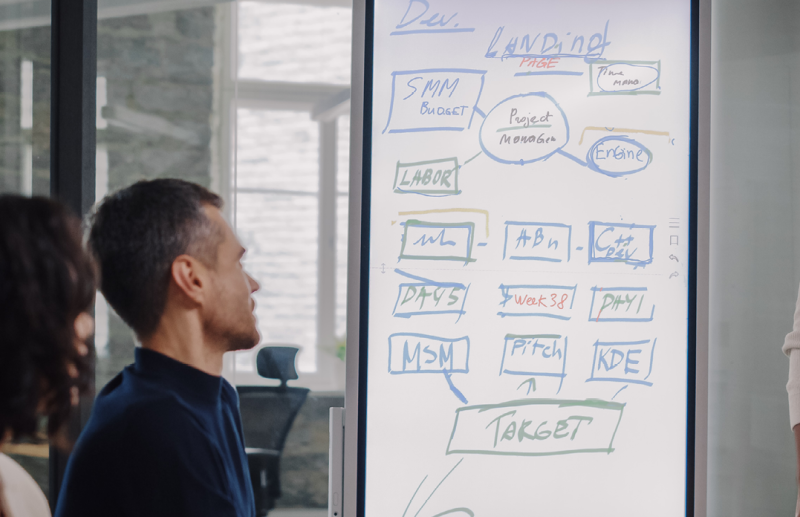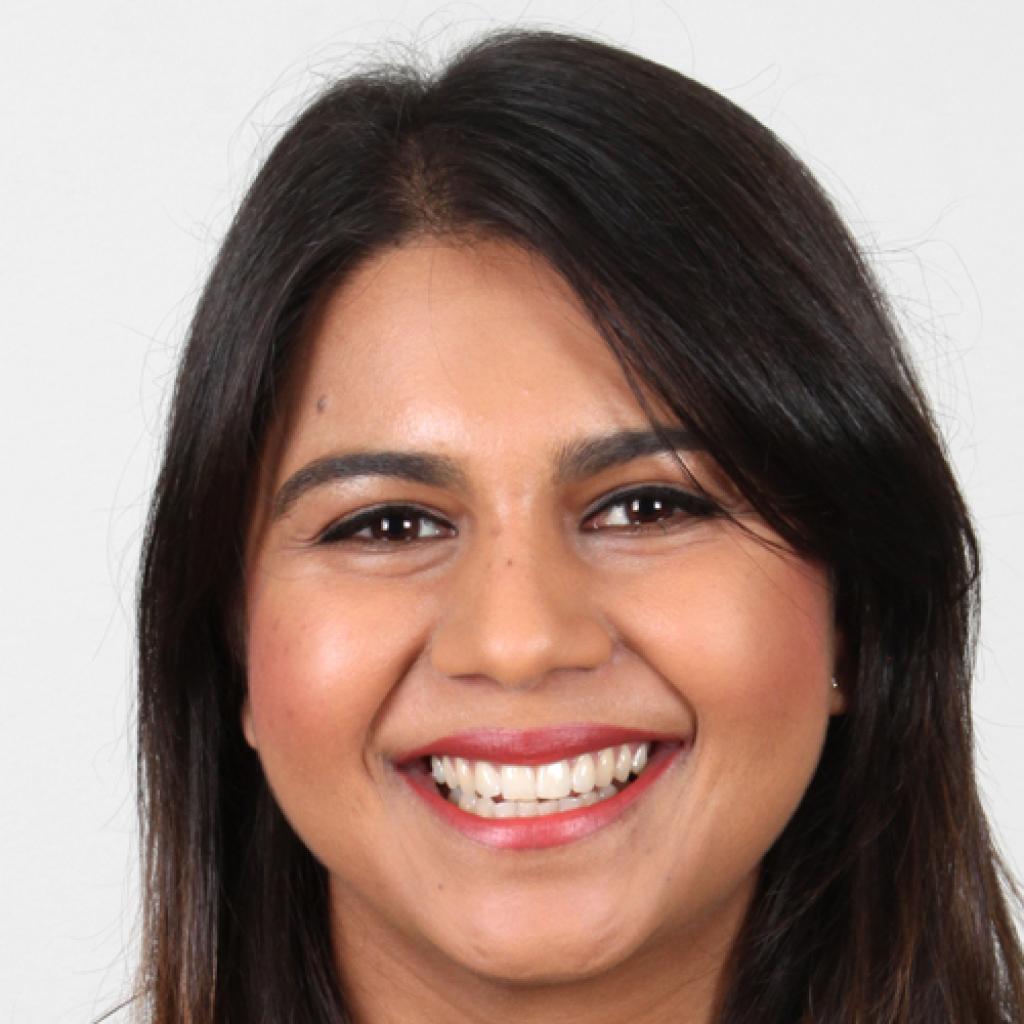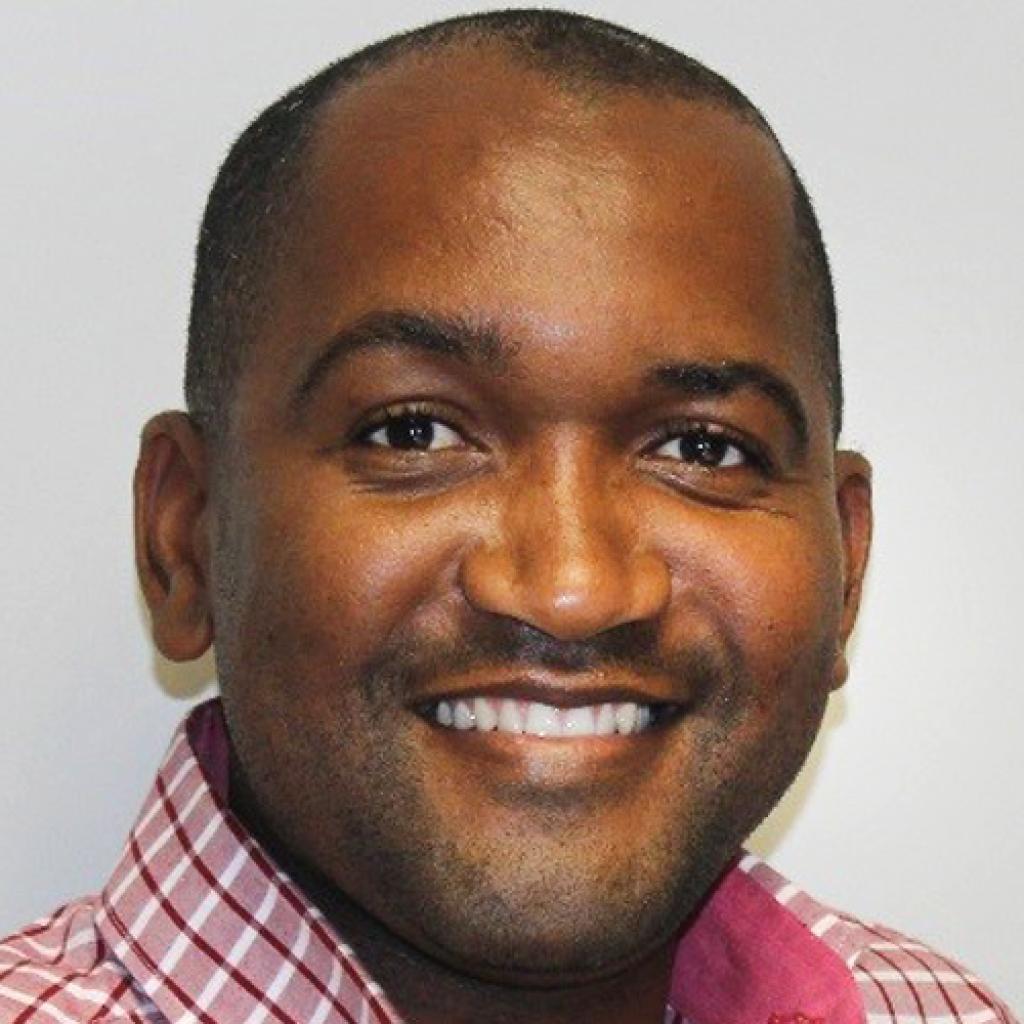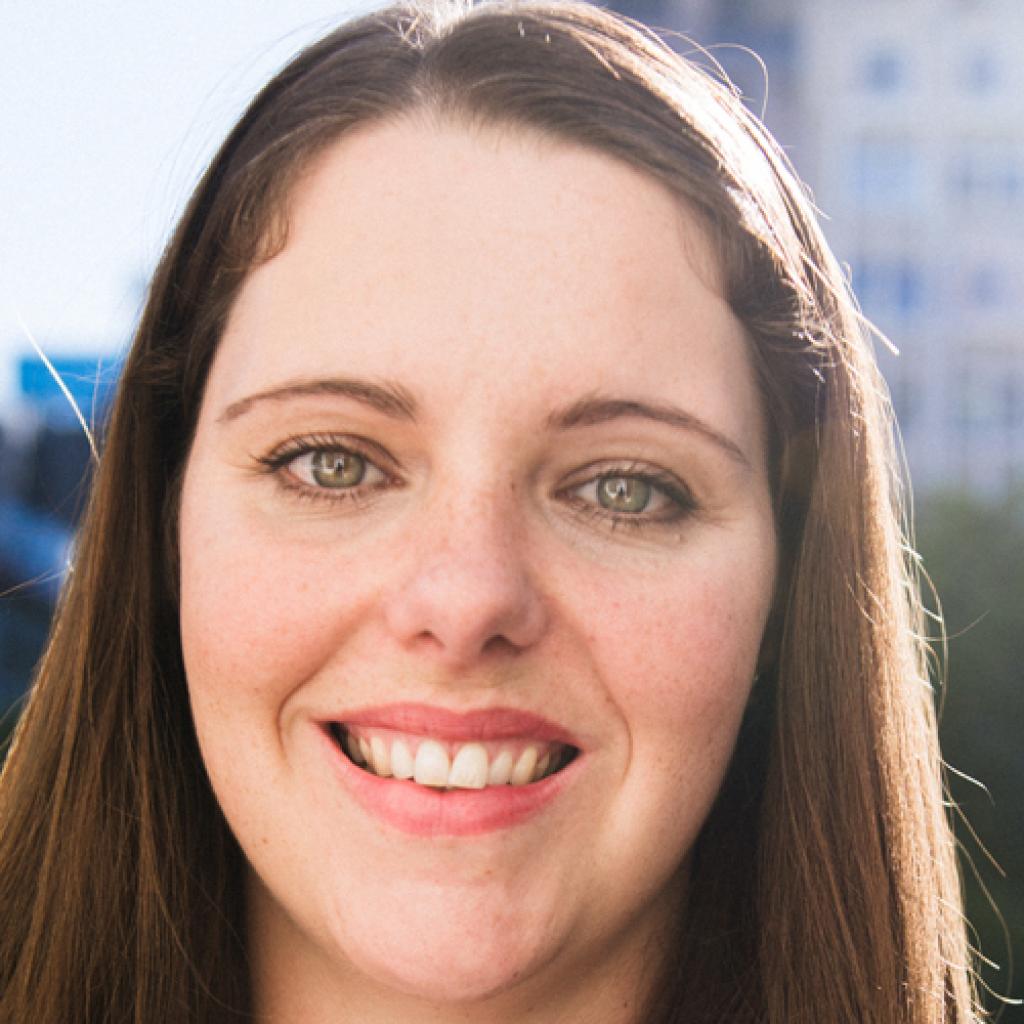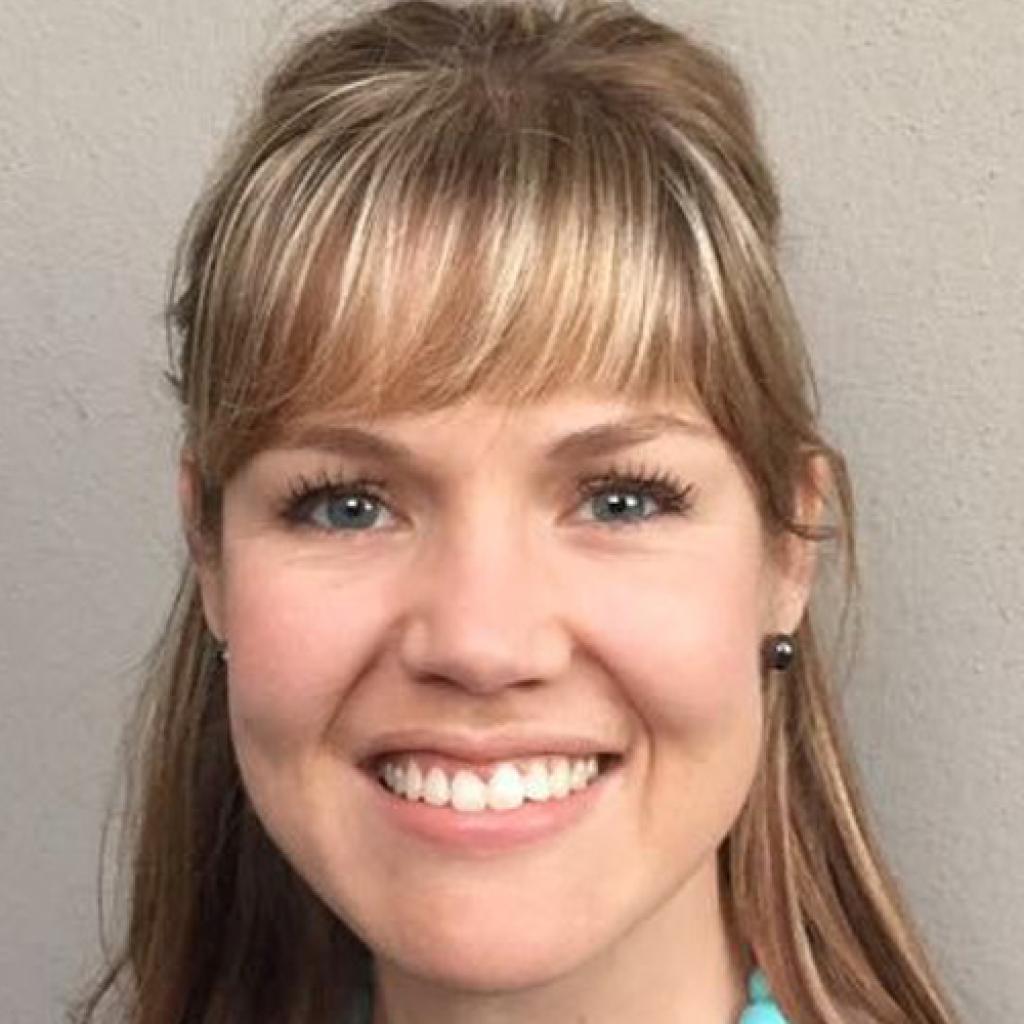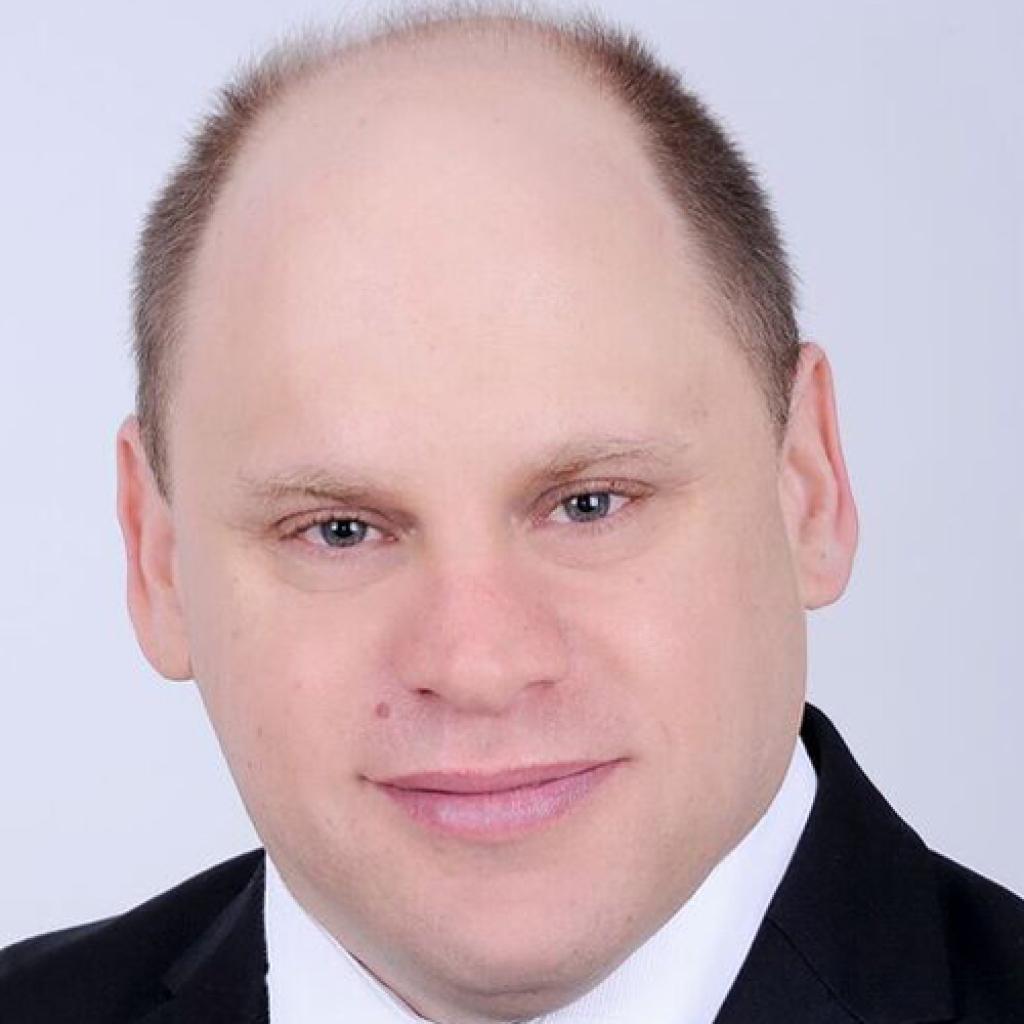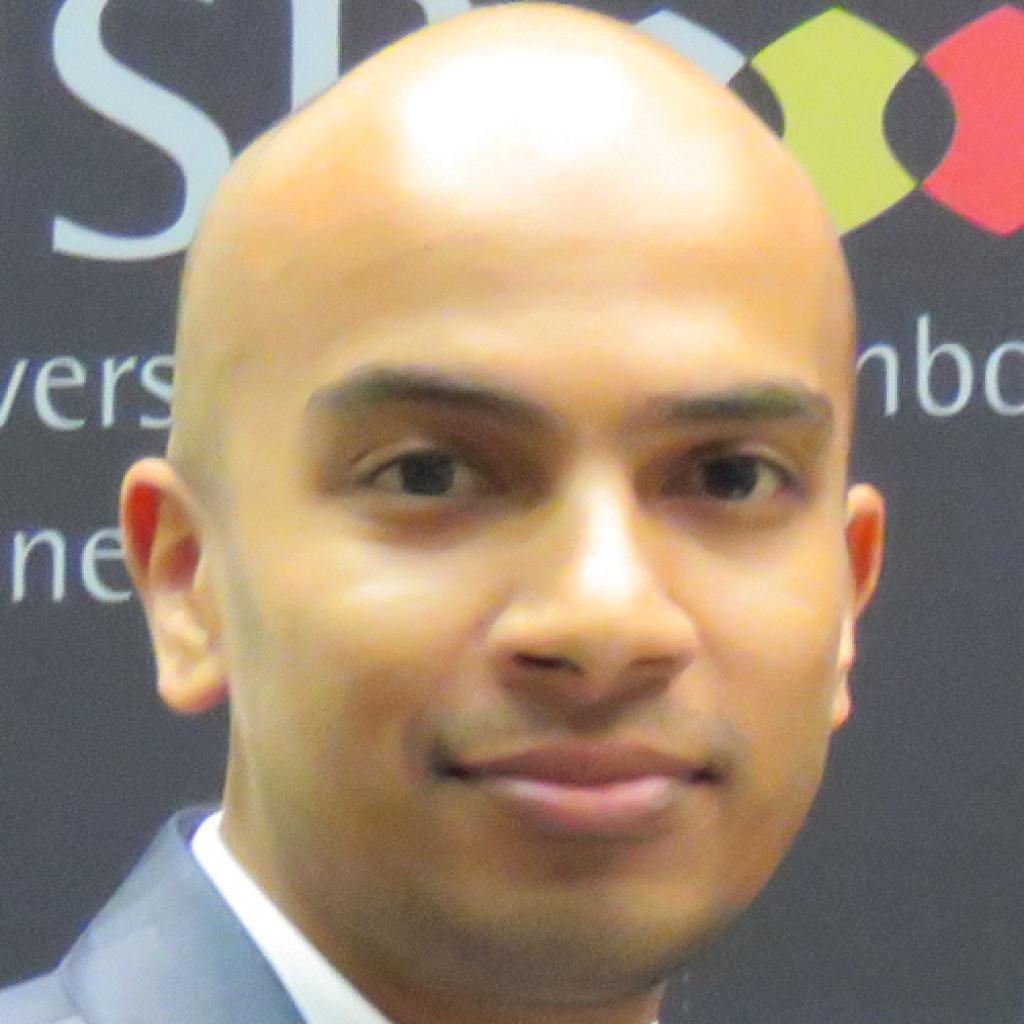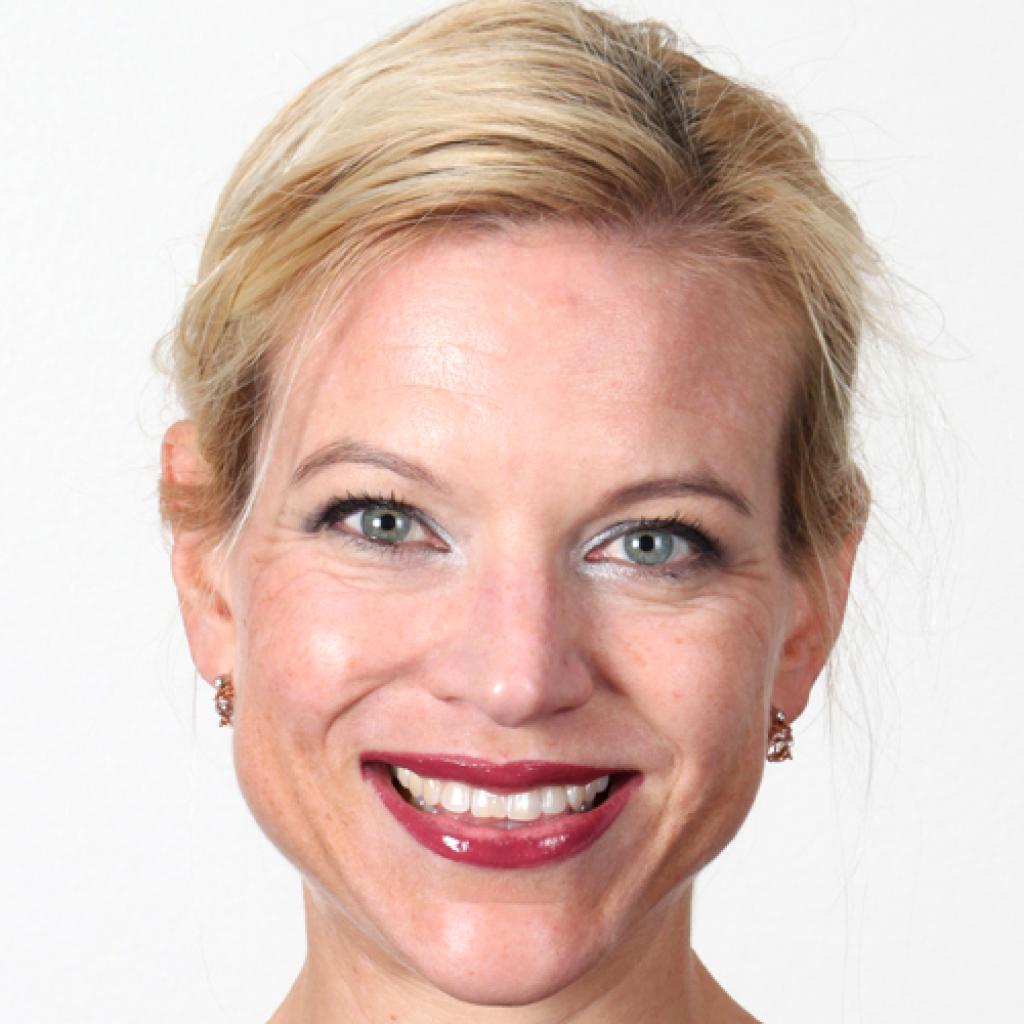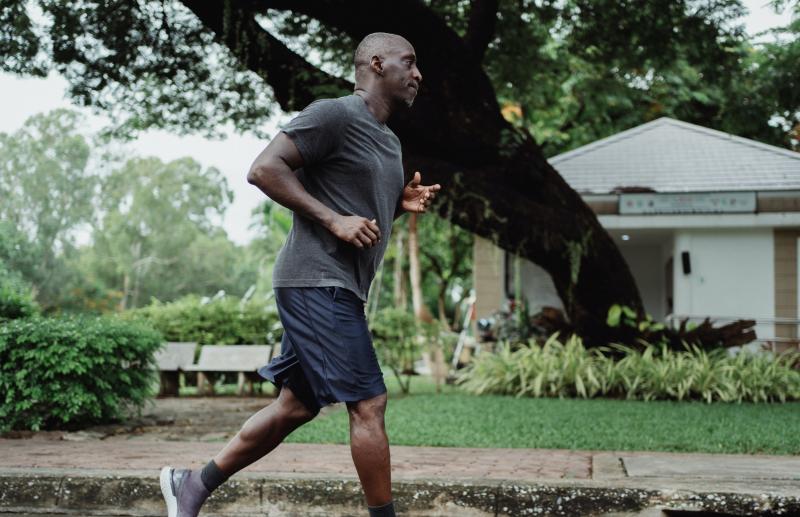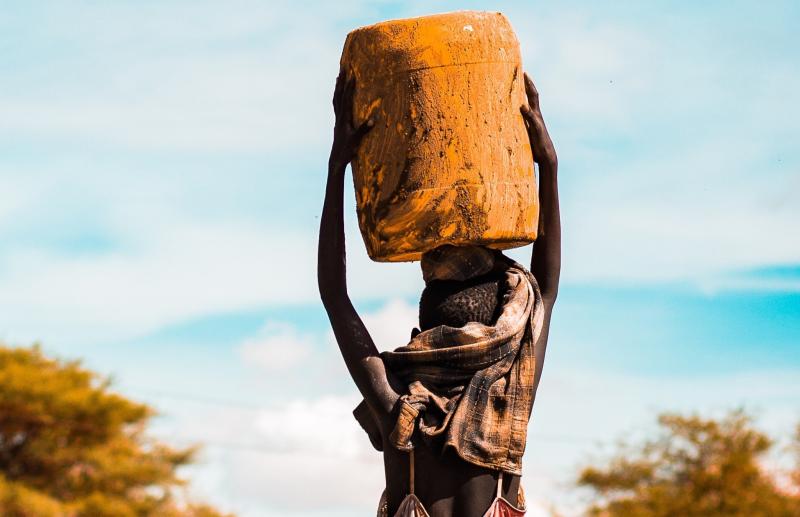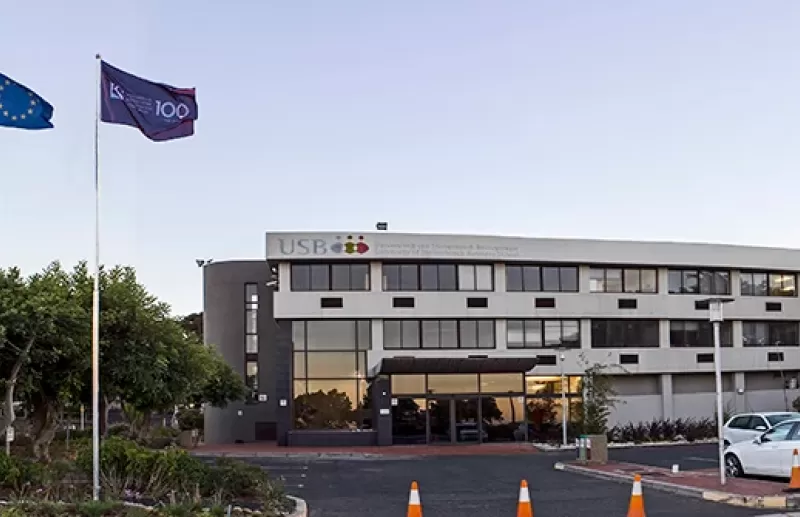Grow as a responsible leader
Our internationally accredited MBA offers you – whether you are a leader, manager, specialist, or entrepreneur – a transformative learning experience aimed at turning you into an exceptional decision maker, strategic thinker, effective communicator, and steward of society. The MBA is still the most widely recognised business management degree in the world.
If your career path is pointing towards senior management and leadership roles, our MBA will help you to take on these responsibilities. We feel so strongly about leadership development that this module spans the entire two-year programme. Over and above responsible leadership competencies and quantitative skills, our MBA has a strong focus on strategy, multi-criteria decision-making skills, cross-cultural skills, digital enterprise management skills, and collaborative learning. You will also attend an International Study Module (various destinations) at a business school abroad.
- Two formats: Choose between the blended learning format (attend class on campus or online) and the modular format (blocks of on-campus classes spread over time). Both formats allow you to study while you work.
- Four options: Choose the Generalist MBA or one of these streams: Managing International Organisations, Health Care Leadership or Project Management.
- Three international accreditations: AACSB, EQUIS, AMBA
Master's
MBA - Master of Business Administration
**Approximate dates. Final dates will become available later during the year.
Modular MBA
Dates for 2024: (on campus)*
- Block 1: 19 – 24 February
- Block 2: 8 - 13 April
- Block 3: 10 – 15 June
- Block 4: 29 July - 3 August
- Block 5: 7 – 12 October
Fees: R342 210** (2024)
Duration: 2 years
*The Business School reserves the right to change programme dates and times.
**Fees exclude International Study Module in Year 2.
Blended MBA
Dates for 2024: (blended)*
- 22 January – 3 February (on campus)
- Thereafter Wednesdays (7 February – 11 December) from 16:00-20:15 - (remote)
Fees: R342 210** (2024)
Duration: 2 years
*The Business School reserves the right to change programme dates and fees.
**Fees exclude International Study Module in Year 2.
Key takeouts of our MBA
- Lead with responsibility
- Think strategically
- Operate on senior management level
- Function globally
- Acquire expert decision-making skills
- Understand the interlinked roles of organisational departments
Course Structure and Content
Stellenbosch Business School’s 2-year MBA degree (NQF level 9; 213 SAQA credits) consists of 18 compulsory modules (including the International Study Module, the flagship Leadership Development Module, and the Research Assignment) and 2 electives. You can customise up to 30% of your MBA, depending on which electives and International Study Module you select, and on the topic of your Research Assignment. The language of tuition is English.
Choose between 2 formats
Our MBA is presented in a blended learning format (combination of online and on-campus classes) and modular format (blocks of on-campus classes spread over time). Both formats allow you to study while you work.
Key competencies you will acquire
Over and above responsible leadership competencies and quantitative skills, our MBA has a strong focus on strategy, multi-criteria decision-making skills, cross-cultural skills, digital enterprise management skills, and collaborative learning. You will also attend an International Study Module (various destinations to choose from) at a business school abroad.
Responsible leadership as core theme
You will follow a bespoke Personal Leadership Development Journey in the Leadership Development Module. This journey focuses on personal leadership, relationship leadership and organisational or strategic leadership to deliver organisational performance. You will acquaint yourself with the theory and practice of responsible leadership through various ways of learning, underpinned by cutting-edge research in neuroleadership.
Benefit from our areas of expertise
Our areas of expertise range from business management and responsible leadership to futures studies and foresight, finance and growth, coaching, project management, sustainability, and social impact. All our programmes benefit from these areas of expertise in one way or another.
What else makes our MBA stand out?
- Our MBA with its strong focus on responsible leadership will help you to prepare yourself for senior-level positions and find your way forward in an ever-changing world.
- The International Study Module (various options) at an overseas business school offers you a global perspective that supports the other elements of the MBA.
- Collaborative learning – where students learn from each other – is another key feature of our MBA. The unique knowledge that each student brings to the table will add depth to your learning experience.
- Our digital and physical environments are aligned with the standards of world-class business education. You will be supported via touch points such as the Centre for Academic Administration, Programme Administration, Career Leadership Office, International Affairs Office, and Alumni Relations Office.
Time management
You need to be aware of the time demand of MBA studies and you need to arrange study time with your employer and family beforehand. A rough guideline: For every 1 hour spent in class, you need to set aside 3 hours for preparation and self-study (reading, assignments, group work, etc.). The MBA has around 520 contact hours, which makes prioritisation critical.
Optional: Exchange studies abroad
MBA students who have performed well during their first year, can choose to complete part of their studies at one of our overseas partner schools. This will enable you to earn credits towards your MBA by doing a module or summer school abroad.
We offer a general MBA stream, for those who want to manage the functional areas of any business at senior management level, and three focal-area MBAs, for those who want domain expertise at senior management level:
- The MBA with generalist modules can be applied at senior management level in businesses ranging from entrepreneurial start-ups to multinational corporations in any business sector.
- The MBA stream with modules in Managing International Organisations (MIO) can be applied in international organisations like the UN, global development agencies, foundations and development finance institutions. It is aimed at those who want to apply responsible leadership in an international development context.
- The MBA stream with modules in Health Care Leadership (HCL) can be applied in the public and private health care industry. It is aimed at professionals who want to understand the principles of clinical governance and health care specific challenges the African context in order to maximise their impact in the health care sector. Health care professionals registered with the HPCSA are able to claim CPD points as per the HPCSA guidelines.
- The MBA stream with modules in Project Management (PM) can be applied in any industry to ensure the successful delivery of a portfolio of projects in a competitive environment based on a thorough understanding of the business management of project portfolios.
The stream-specific modules of the MBA MIO, MBA HCL and MBA PM are offered during the second year of enrolment in the Blended Learning format, irrespective of the format chosen for the first year of study (i.e. modular or blended learning).
All students will graduate with an MBA from Stellenbosch University. If the student followed a focal area – i.e. Health Care Leadership, Management of International Organisations, or Project Management – this will be displayed on their MBA degree certificates.
MBA with generalist modules
- Those who want senior-level business management expertise to apply in businesses ranging from entrepreneurial start-ups to multinational corporations in any business sector
- Managers, professionals, specialists and entrepreneurs who want to acquire responsible leadership skills, exceptional decision-making skills, strategic thinking skills, effective communication skills and an understanding of the role of business in society
MBA stream in Managing International Organisations (MBA MIO)
- Professionals or managers working in international organisations, development agencies, and foundations or NGOs, who want to fast-track their careers
- Managers from private and public sector institutions who want to expand their cross-sector agility, especially by improving their skills for leadership in complex and conflict-ridden multi-stakeholder contexts
- Professionals who want to transition to working in international development organisations or in organisations with a strong environmental, social and corporate governance (ESG) agenda
MBA stream in Health Care Leadership (MBA HCL)
- Clinicians and general practitioners who want to take on managerial and leadership roles in the health care industry, group practices or government
- General practitioners who wish to scale up and broaden their contextual understanding of business
- Managers and professionals in private-sector and public-sector health care delivery systems and institutions, in pharmaceutical or health technology businesses, in regulatory, oversight and other organisations (such as SAMA, HPCSA, HASA, SAIHCM), or in public-sector positions (such as Deputy Director-General, CEO or Superintendent)
- Senior nurses in public or private hospitals who lead large teams and operate on senior level with high-impact responsibilities
- Health insurance specialists, medical aid specialists, underwriters and claims processing team leaders and managers
- Those who would like to prepare themselves for a career in health care leadership, even if they do not have a background in health care.
MBA stream in Project Management (MBA PM)
- Project managers looking to transition into senior business manager roles
- Project managers looking to transition into a senior project manager role, such as a Chief Project Officer
- Project or business managers looking to transition into programme or portfolio manager roles
- Project managers looking to move into a different industry
- Project managers who intend to become (or who are) independent consultants
- Business managers wishing to improve their understanding of project portfolio management in the business context
- MBA candidates with a keen interest to develop their competencies and understanding of project portfolio management
- Stellenbosch Business School’s PGDip Project Management graduates who wish to further their careers in this field
- Entrepreneurs looking to capitalise on the growth in the project portfolio management domain
These 18 modules apply to the Generalist MBA and the 3 MBA streams:
- Accounting for Decision-Making (8 credits)
- Business Communication Skills (4 credits)
- Business in Society (8 credits)
- Contemporary Decision-Making (12 credits)
- Corporate Finance (12 credits)
- Digital Enterprise Management (8 credits)
- Economics for Managers (8 credits)
- International Study Module (8 credits)
- Leadership Development (16 credits)
- Managerial Accounting (8 credits)
- Managerial Statistics (8 credits)
- Operational Excellence (8 credits)
- Organisational Behaviour (8 credits)
- Perspectives on African Frontiers (8 credits)
- Research Methodology and Assignment (45 credits)
- Strategic Analysis (8 credits)
- Strategic Management (12 credits)
- Strategic Marketing and Branding (8 credits)
You need to do 2 electives (modules) from specialisation areas such as Finance and Economics; Leadership and Human Resources; Marketing Management; Ethics, Governance and Sustainability; Decision Science and Digital Transformation; Strategic Management; and Innovation and Entrepreneurship. These electives on offer differ from year to year.
All MBA students travel to global destinations for the compulsory International Study Module (ISM). The aim of this academic and cultural immersion is to develop managers with a global mind-set, to prepare you for work in a global environment, and to help you understand cultural differences in order to turn cultural competence into a competitive advantage. The module includes company visits and cultural activities.
You will have various destinations from which to choose. You can also opt to do your ISM on Global Business Innovation at an EMBA Consortium business school.
Note: Students in the HCL, MIO and PM streams may be restricted in the ISM destinations from which they can choose.
Concurrent with the latter part of the MBA, you need to compile a Research Assignment on a management-related problem. This assignment may be based on a problem in your work environment. Results obtained from the research could therefore benefit both you and your employer.
The research assignment will add depth to your learning experience as it provides you with a structured method to answer a question or solve a real-life challenge. This assignment therefore serves as an example of how to handle business challenges by following a robust research process.
This experience will also give you the ability to make a value judgement on research presented at managerial level in the workplace.
MBA students who have performed well during their first year, can choose to complete part of their studies at one of our overseas partner schools. This will enable you to earn credits towards your MBA by doing a module or summer school abroad.
Exchange studies abroad are optional. Yet, they provide you with an opportunity to gain a global perspective, grow your network, and increase your employability.
Stellenbosch Business School provides additional access to its programmes through its Recognition of Prior Learning (RPL) process, as recommended by the Council on Higher Education (CHE). The purpose of the Council on Higher Education’s policy on Recognition of Prior Learning is to develop and facilitate the implementation of RPL across the higher education sector and to base this on the principles of equity, access, inclusivity and redress of past unfair discrimination with regard to educational opportunities.
In line with the requirements of the Council on Higher Education, the Business School may admit up to 10% of its student body per programme under RPL.
Applicants who wish to be admitted under the RPL policy need to submit all the documentation and tests as required for all prospective students.
In addition, prospective MBA students under the RPL policy need to adhere to the following:
- Have at least an NQF 6 qualification (all school and academic certificates are required).
- Have at least 6 years of working experience after obtaining the qualification mentioned in the first bullet point, of which at least 3 years should have been in a management or a related professional position.
- Submit a comprehensive CV, indicating, in detail, areas of responsibility in the work environment as well as activities outside the work environment.
- Provide Stellenbosch Business School with the names and contact details at least two persons (typically current or former line heads) who can testify about the candidate's managerial or related professional abilities. These persons will be asked to give a detailed personal reference of the candidate on forms that can be download from the application form.
The RPL selection process entails the following:
- The MBA programme head and one other academic staff member will conduct an in-depth interview with the candidate and make a recommendation about admission.
- The Admissions Committee will consider the full application including the interview recommendation and the inputs received from the references for admission.
- A notice of admission is sent via the Business School’s Academic Planning Committee to the Board of the Faculty of Economic and Management Sciences at Stellenbosch University.
- RPL candidates need to apply by 31 October of each year to allow sufficient time for the assessment process.
- Note that the learning acknowledged in terms of RPL cannot also be used to grant exemption of credits within the same programme.
With our MBA, a transformative learning experience awaits you – particularly if you see your future self as a leader, manager, specialist, or entrepreneur. This triple accredited MBA with its strong focus on responsible leadership has been designed to transform you into an exceptional decision maker, strategic thinker, effective communicator, and steward of society.
Programme Fees
Application fee and SHL tests for 2024
These are the fees for 2024. The fees for 2025 will be published here once they become available.
Important:
- Payment of full programme fees for South African students: Students can pay the full programme fees upon registration, or they can pay 80% of the annual fees by the end of May and the balance of 20% by the end of September.
Payment schedule (calculated on outstanding fee after deposit payment):
28 February - 31 May - 20% x 4 months (80%)
30 June - 20 September - 5% x 4 months (20%) - Payment of full programme fees for international students: International admitted students pay 50% of the annual fee as deposit. The remainder is due one month before commencement of the programme. The South African exchange rate favours international students.
- Deposit: All students pay a deposit on acceptance of admission. South African students must pay a set deposit on admittance. International admitted students pay 50% of the annual fee as deposit. The deposit payable is non-refundable and will be deducted from the total programme fees.
- Application fee: The application fee must accompany the application. The application fee is non-refundable.
- Additional fees for international students: International students pay an International Registration Fee (IRF) per academic year. Students from countries other than those in the Southern African Development Community also pay an International Tuition Fee (ITF) (i.e. students from SADC countries are exempt from the ITF).
- Fees for 2026: The fees for the second year of enrolment (modular MBA as well as blended learning MBA) will be adjusted to make provision for annual price increases. The programme fees for the second year of enrolment are higher than for the first year of enrolment because the second year’s fees include the cost of the International Study Module.
- International Study Module (ISM): The fees for the compulsory International Study Module are excluded from the total MBA programme fees and are only invoiced in Year 2. Note that the fees for the 2026 ISM may have to be adjusted based on the exchange rate.
- Assessment of international students’ applications: International students require a South African Qualifications Authority (SAQA) evaluation certificate to evaluate their degrees according to South African standards. The Business School’s International Affairs Office will first handle the credential evaluations of international students free of charge. For this to happen, you need to complete the online application and upload all certificates with your application, and pay your application fee and SHL assessment fee (if you have opted for the SHL test). The International Affairs Office will then, as part of the application process, conduct an in-house credential evaluation after you have submitted your application. However, should the International Affairs Office be unsure about the status, recognition or accreditation of your qualification, we reserve the right to refer you to SAQA before we consider your application further.
- Study materials: Study fees include books and study materials.
- Travel and accommodation: Students are responsible for their own travel and accommodation arrangements and costs.
- Fee changes: Stellenbosch Business School reserves the right to change the fees at any time.
Please use your Student Number as reference | Email proof of payment to [email protected] | Quote your student number in all correspondence.
Admission Requirements
Academic qualifications
The SA Council on Higher Education requires MBA applicants to have one of these qualifications:
- 4-year Bachelor’s degree (NQF level 8), OR
- Honours/Postgraduate degree (NQF level 8), OR
- 3-year Bachelor’s degree (NQF level 7) plus a postgraduate diploma (NQF level 8)
- Additional requirement for students enrolling for the MBA stream in Project Management: A Project Management course on NQF level 8, for which credits can be considered in respect of required electives
Other requirements
- At least 3 years of relevant full-time working experience, preferably on managerial level
- Mathematics at NSC (Grade 12) level or equivalent is highly recommended
- A comprehensive CV
- 2 essays (300 to 500 words each), showing your level of motivation and working experience. The topics are your external development perspective and your personal development perspective.
- Satisfactory selection test results (SHL or GMAT Focus)
Selection tests
We accept the SHL and GMAT selection assessments.
- SHL assessment: The SHL assists us to identify your areas of strength and growth. It is not about failing or passing. The assessment consists of a verbal critical reasoning assessment, numerical critical reasoning assessment, inductive reasoning test, and Occupational Personality Questionnaire (OPQ) on behavioural preferences. Administered by Stellenbosch Business School.
- GMAT Focus assessment: The GMAT Focus has three timed sections, namely quantitative reasoning, verbal reasoning, and data insights (digital and data literacy). Not administered by Stellenbosch Business School.
You need to do a selection test as part your application process. We accept the SHL and GMAT selection tests. These tests are recognised internationally.
SHL selection test
You need to complete the SHL abilities selection test as part of your application process. The test consists of a verbal critical reasoning assessment, numerical critical reasoning assessment, inductive reasoning test, and Occupational Personality Questionnaire (OPQ) on behavioural preferences, which are used for selection and for the identification of your development areas.
The SHL assists us to identify your areas of strength and growth. It is not about failing or passing. The early identification of growth areas allows you to prepare yourself well and focus your efforts on academic and career success. As a responsible institution, we need to ensure that all students admitted are provided with the best possible chance to succeed in their studies and careers. The SHL is used in combination with the essays required as part of the application process, prior academic results and work experience to form a clear picture on which to base admission and development decisions.
- Duration: Approximately 3 hours.
- Preparation: No preparation is required. However, you are encouraged to perform a practice test to familiarise yourself with the test format. See www.shl.com/shldirect/en-us/practice-tests/
- About the test: The SHL test is done online. (Random verification might be requested.) You will be provided with a link to the SHL test once you have paid your MBA application fee and SHL selection test fee, and after you have submitted your application form and have received your provisional student number. (You need to use this provisional student number when writing the SHL.)
- Cost: For fees, please see www.stellenboschbusiness.ac.za/programmes/mba-master-business-administration. See bank details under How to apply and use your provisional student number as reference. The application fee and SHL selection test fee can be paid online, and they are non-refundable.
- Link to the SHL selection test: You do not have to arrange with the Business School to write the SHL test. You will receive a link to the test once the relevant payments have been received and you have submitted your application form. The Business School will receive your results directly from SHL and will upload it to your application form on your behalf.
- Additional information: www.shl.com/en/assessments/cognitive-ability/
- Important: The SHL selection test is valid for 18 months. If your SHL selection test results are older than this, you should ideally rewrite the test as people grow and develop, and assessments need to take this into account. We do not consider SHL tests from other institutions as you may have written a different type or level of test, or you may have been compared to a different comparison group. If you have completed the SHL with Stellenbosch Business School during the past 18 months, you do not have to rewrite the test.
GMAT Fous selection test
The GMAT Focus consists of three sections, namely quantitative reasoning, verbal reasoning, and data insights (digital and data literacy). A copy of the results will automatically be forwarded to the Business School.
- Duration: About 2½ hours.
- When and where: This test is not administered by Stellenbosch Business School. International students need to contact the Regional Registration Centre in the Netherlands on 0931 320 239 593 or go to https://accounts.gmac.com/Account/Register. SA students need to contact Pearson VUE Professional Centre in Johannesburg on +27 (0)11 784 3093 or 0800 995 044 or at [email protected].
- Cost: $275 (2024). Find more information at www.gmac.com.
You need to write two essays on the topics indicated below and include these with your application. The essays serve two purposes. First, they provide us with additional information about your personal and professional background. Second, they provide us with additional insight into your writing ability, a skill that is critical in completing the MBA degree.
Each essay must be between 300 and 500 words. (Please indicate the word count at the end of each essay, and submit one PDF document containing both essays.)
- External development perspective: Summarise your development as a leader with emphasis on the individuals, processes and institutions that have played a major part in your development. Conclude with your reasons for choosing Stellenbosch Business School, and why it fits your criteria as an institution at which you can continue your career development.
- Personal development perspective: Summarise your personal development, the challenges you have experienced, how you have dealt with these challenges, what you have learned from this and the insight that you have gained about yourself and your role in business and society. Conclude with your current developmental needs and why this programme is important for your development given your desired future.
Before you start
- About the online application process: The online application form consists of various sections. To progress from the one section to the next, all the information in the current section must be completed and accepted by the information management system. You will be able to complete the form in steps without losing information (i.e. you do not have to complete the application form in one sitting). The application process is the same for South African and international students. It is best to use Google Chrome as web browser when completing your application.
- Determine the NQF levels of your previous qualifications: To find out whether you qualify for Stellenbosch Business School’s MBA, please check the NQF levels of your previous qualifications with the academic institution(s) where you have studied, or contact [email protected].
- Assessment of international students’ applications: International students require a South African Qualifications Authority (SAQA) evaluation certificate to evaluate their degrees according to South African standards. The Business School’s International Affairs Office will first handle the credential evaluations of international students free of charge. For this to happen, you need to complete the online application and upload all certificates with your application, and pay your application fee and SHL assessment fee (if you have opted for the SHL test). The International Affairs Office will then, as part of the application process, conduct an in-house credential evaluation after you have submitted your application. However, should the International Affairs Office be unsure about the status, recognition or accreditation of your qualification, we reserve the right to refer you to SAQA before we consider your application further.
- Checking the status of your application: You can go back to your application and check the status of your application.
- Vetting process: All degrees undergo a formal vetting process to eliminate fraudulent applications.
The application process
Click on the APPLY NOW button and complete the online MBA application form by completing each of the required sections. The Business School will upload the SHL selection test results on your behalf. You also need to upload the following supporting documentation:
- Comprehensive CV
- 2 essays of up to 500 words each (in one PDF document)
- Certified copies of degree certificates (if not available, obtain the certificates from the academic institution where you have studied)
- Certified copies of academic transcripts, records, marks or results (if not available, obtain the transcripts from the academic institution where you have studied)
- Consent form to verify your qualifications (please download, complete and upload the form in order for Managed Integrity Evaluation (Pty) Ltd to verify your qualification documents)
- GMAT selection test results (the Business School will upload SHL selection test results on the student’s behalf)
- Certified copy of your ID (or passport for non-South African students)
- A marriage certificate (where the applicant’s new surname does not match the surname on the degree certificates)
Payment of your application fee and selection test fee (in case of the SHL) can be done online:
- Bank details: Bank: Standard Bank; Type of account: cheque account; Account name: US Business School; Account number: 073003069; Branch name: Stellenbosch; Branch code: 050610; Beneficiary name: Stellenbosch University; SWIFT code: SBZAZAJJ.
- Enquiries about payments: Please send an e-mail to [email protected].
What happens next?
Your application can only be assessed by the selection panel if it is accompanied by your completed online application form, all the supporting documents, and your completed selection test. The outcome of the selection process will be made known within 30 days or as soon as possible thereafter.
If you are uncertain whether your application is complete and is being processed, contact [email protected] for assistance.
Deadlines for MBA applications and SHL selection tests:
- 15 November for students from South Africa, visa-exempt SADC countries, and the rest of the world
- 31 October for RPL applicants.
Due to a demanding first block, it is advisable to apply earlier rather than later in order to gain access to course material in good time. Also note the following:
- Rolling applications: The MBA programme uses a system of rolling registrations, which means all completed applications are processed once received and not after the closing date. It is thus possible that popular delivery modes or particular cohorts could be full prior to the application deadline.
- Deadlines for RPL applicants: The application deadline for Recognition of Prior Learning applicants are earlier than those for other students to allow sufficient time for assessment.
- Study permits for international students at the Business School: Obtaining a study permit (study visa) from the South African authorities can take up to 12 weeks from the date of being offered a place on a programme at the Business School. An early start with your application process is therefore advisable.
- Multiple-entry visas: Students from non-SADC African countries and other countries with visa requirements who need to apply for study visas can obtain a letter from Stellenbosch Business School confirming the duration of registration at the school. This will help students to obtain multiple-entry study visas in case of modular studies.
Stellenbosch Business School supports the principle of recognition of prior academic learning, although this is only applied in very selective instances because group work and collaborative learning are cornerstones of the MBA. To obtain an MBA degree at Stellenbosch Business School, a student must be registered at Stellenbosch University for at least two years and obtain at least 50% of the credits at this University. A student who has been admitted to the MBA may apply for recognition of such prior learning, provided that it was obtained on another MBA. Students wanting to apply for accreditation of credits obtained elsewhere need to supply:
- An application that includes full course outlines, number of SAQA credits, learning outcomes, number of class contact hours, prescribed textbooks, method and weights of assessment, and outcomes or topics per class session. Please also include a list of modules passed and grades achieved as communicated by the institution.
- Additional work or assessments may be required.
Consider the Business School’s Postgraduate Diploma Business Management and Administration (NQF level 8 with 120 credits). This programme, passed at a certain level, will give you access to the MBA. Also look at the other postgraduate diplomas we offer.
Study visa requirements for international students
All residential students who are non-South African citizens and are studying at Stellenbosch Business School require a study visa. Prospective students should contact their nearest South African Mission (South African Embassy, Consulate or High Commission), normally in their country of origin, to enquire about the requirements for study visas for South Africa. Applicants are required to present themselves in person so that biometric data may be captured. All international students can contact the Business School’s International Affairs Office at [email protected] for assistance. All international students must hold a valid visa for their intended activity prior to entering South Africa.
Notes on obtaining a study visa
- Obtaining a study visa from the South African authorities takes approximately 12 to 16 weeks from the date of application. However, some missions may process applications sooner. Sufficient time should be allowed for study visa applications to be processed.
- Your study visa application should include a copy of the letter offering a place on the Business School’s study programme. This letter will be provided by our Centre for Academic Administration once the application has been approved. A place on the programme must be confirmed before a study visa application can be considered by the South African Department of Home Affairs. Students should not proceed to Stellenbosch University or its Business School without a valid study visa.
- Although applicants are expected to determine exactly what they require to apply for a study visa, they can be expected to provide the following, among others: a police clearance certificate, proof of medical insurance recognised in South Africa, a radiology report, proof of sufficient funds, and an admission letter from Stellenbosch Business School. Your nearest South African Mission will be able to advise in this regard. The onus falls on the student to make sure that he/she submits a complete application pack.
- All documents should be certified and translated into English before submission (in order not to delay the outcome of the application).
Contact Us
Please contact us if you need more information on our MBA or the application process:
Programme enquiries and support with the applications process
Customer Liaison Officer
Telephone: +27 (0) 21 918 4246
Email: mba@stellenboschbusiness.ac.za
Admission and registration enquiries
Mandy Samuels
Telephone: +27 (0) 21 918 4206
Email: [email protected]
Frequently Asked Questions
You can choose the Modular MBA and the Blended Learning MBA, both running over two years. Both formats allow you to study while they work.
The Modular MBA consists of blocks of classes spread over two years. Each block runs from the Monday to the Saturday. This allows you to implement your newly acquired skills at work from the start. You can therefore study at the Business School even if you live further afield as you only need to travel to the campus a few times a year. The advantages include:
- An immersive experience: Being on campus for a week at a time allows you to focus on your studies without interruption from work. Working with your classmates in a face-to-face environment adds another dimension to collaborative (peer-to-peer) learning and network building.
- Less travel: You only need to travel to campus a few times a year.
The Blended Learning MBA has one on-campus study block at the start of Year 1 and two on-campus blocks during Year 2. In-between, you attend weekly classes online or on campus. This format requires the minimum leave from work. It also lowers the opportunity cost to do an MBA at Stellenbosch Business School as it reduces travel and accommodation costs. This format is popular with students from the greater Cape Town area, other African countries and beyond, who can attend one evening class per week via any internet-connected laptop. The advantages include:
- Flexibility: Study while you work with the flexibility of digital class attendance, which means minimum time away from work. This allows you to implement your newly acquired skills at work from the start.
- Less travel: This delivery option lowers the opportunity cost to do an MBA with us as it reduces travel and accommodation costs. This format is popular with students from the greater Cape Town area who can attend classes on campus one evening a week, as well as with students from further afield, who can attend one evening class per week via an internet-connected laptop.
Both formats of the MBA – i.e. the Modular format and the Blended Learning format – run over two years. The dates and fees are published on our website once this information becomes available.
Both formats of the MBA – Modular and Blended Learning – allow you to study while you work. However, you need to be aware of the time demand of MBA and you need to arrange study time with your employer and family beforehand. Here is a rough guideline: For every 1 hour spent in class, you need to set aside 3 hours for preparation and self-study (reading, assignments, group work, etc.). The MBA class programme takes up around 448 hours. This makes prioritisation crucial.
Relevant work experience is a requirement of the Business School’s international EQUIS accreditation; it cannot be waivered. Importantly, collaborative learning – where students learn from each other – forms an important part of our MBA. The expertise, depth and value that each participant brings to the class depend largely on authentic work experience and ultimate value gained from the MBA.
The focus of the MBA is on collaborative learning. Every participant brings certain expertise to the class – some through formal learning, others through informal learning. If the most knowledgeable persons were to be exempted from classes, the learning experience for the whole class will be impaired. Thus, as a general principle, no exemption is granted. In a limited number of special cases, for example where an MBA student transfers from another university to Stellenbosch Business School, exemption could be considered.
Short courses done via executive education cannot be presented as prior learning for credit recognition in the South African education system. However, for RPL students, any previous short courses will have a positive impact on the assessment of their application.
Yes, but on a volunteer basis only. Alumni of the Business School offer to mentor students during their studies, and can provide career or industry advice. This service is offered in association with the business school’s Alumni Relations Office and Career Leadership Office.
This will depend on each lecturer and on the subject – as some subjects require a substantial amount of team work while others require less team work. The weight varies from 0% (no team work) up to 40%. It is imperative that MBA students can communicate electronically to work on their assignments. There is no need to meet physically.
Academic assistance is offered via a web-based learning environment, various software and database resources, teams (dedicated study groups), informal learning groups, and tutorials for certain modules. Support is also provided by the Centre for Academic Administration, Programme Administration, IT Division, Library, Career Leadership Office, International Affairs Office, and Alumni Relations Office.
Modular MBA students will receive their first batch of study materials or access to e-books three weeks prior to the beginning of the programme and thereafter at the end of every modular block for the following block. Blended Learning MBA students will receive their first batch of study materials or access to e-books three weeks prior to the beginning of the programme and at regular intervals thereafter.
Being fully prepared for each class session is extremely important. This starts with the compulsory reading and completion of online work prior to the contact sessions on campus. When you make time available to spend with the learning material prior to each block you will not fall into a pattern of playing catch-up at the time. This will help you to enjoy your studies, contribute in class and succeed in your studies.
Yes. South African students can pay the full programme fees upon registration, or they can pay 80% of the annual fees by the end of May and the balance of 20% by the end of September. International admitted students pay 50% of the annual fee as deposit. The remainder is due one month before commencement of the programme.
SELECTION TESTS
Stellenbosch Business School accepts both tests. The SHL selection test is usually the preferred option as we facilitate the process. You do not have to make a booking for the test; you will receive a link to complete the online SHL assessment once we have received your SHL payment. The tests measure language skills, verbal reasoning, numerical reasoning and learning potential. SHL is an ability test, so no preparation is required.
APPLICATION PROCESS AND CLOSING DATE
The closing dates for each programme appear on the web page for that programme. In general, the closing dates for international applicants from non-SADC African countries and rest of world close approximately three months prior to the closing date for applicants from South Africa and (visa-exempt) SADC countries. Obtaining a study permit (study visa) from the South African authorities takes up to 12 weeks from the date of being offered a place on a programme at Stellenbosch Business School – hence it is advisable to start with the application process as soon as possible RPL candidates (all programmes) need to apply by 31 October each year. Applications must be fully completed (all documents uploaded and SHL / GMAT test completed) by the stipulated closing date.
Provisional statements can be generated via our website.
Yes, but you will have to attach an affidavit stating your matric certificate is lost and you have applied from the Department of Education to re-issue a new copy.
INTERNATIONAL STUDY MODULE
During their final year, MBA students need to attend the compulsory International Study Module (ISM) abroad. You will have various destinations from which to choose. The aim of this academic and cultural immersion is to develop managers with a global mind-set, to prepare you for work in a global environment, and to help you understand cultural differences. The module includes company visits and cultural activities. The cost of the ISM is invoiced in Year 2.
The Business School, through its International Affairs Office, arranges study visits to business schools in about 10 different countries every year. The focus of each study visit typically corresponds with a field of expertise at the foreign business school hosting us. You can also opt to do your International Study Module on Global Business Innovation at one of the EMBA consortium business schools, which are in Italy, Brazil, the UK, Peru, Japan, Germany, Poland and the USA. You will be asked to select one ISM at the start of your second year.
MBA students in the Health Care Leadership, Managing International Organisations, and Project Management streams may be restricted in the ISM destinations from which that they can choose.
The duration of an ISM study visit is around one week. This typically takes place during the June holiday. The various ISM options have different departure dates.
If you are joining an ISM, you will be travelling with other students from Stellenbosch Business School who have also opted for the same ISM. If you are joining an EMBA Consortium study visit, you will be joined by students from various countries. Stellenbosch Business School alumni may also join the ISMs (for their own account).
ASSESSMENTS
Students are assessed on a continuous basis. Each module has a minimum number of assessments based on the credits for that module. The final performance mark therefore includes multiple individual assessments and often a team assessment component. Tests for Blended Learning MBA students are scheduled on Monday evenings between classes. Tests for Modular MBA students are scheduled on Monday evenings between blocks.
Tests focus primarily on the application of knowledge and insight into business problems. Hence, all tests are open book and require the analysis of problems or cases. These summative assessments simulate real-life situations and the application of the theory and techniques covered in a particular module. In the assessment of pre-reading, multiple-choice questions or reflective essays are often used prior to attending class. Many lecturers make past test papers available as a learning resource.
BURSARIES
A limited number of bursaries are available for students through Stellenbosch Business School and the Alumni Association’s Future Fund.
Related Programmes
Related Articles
